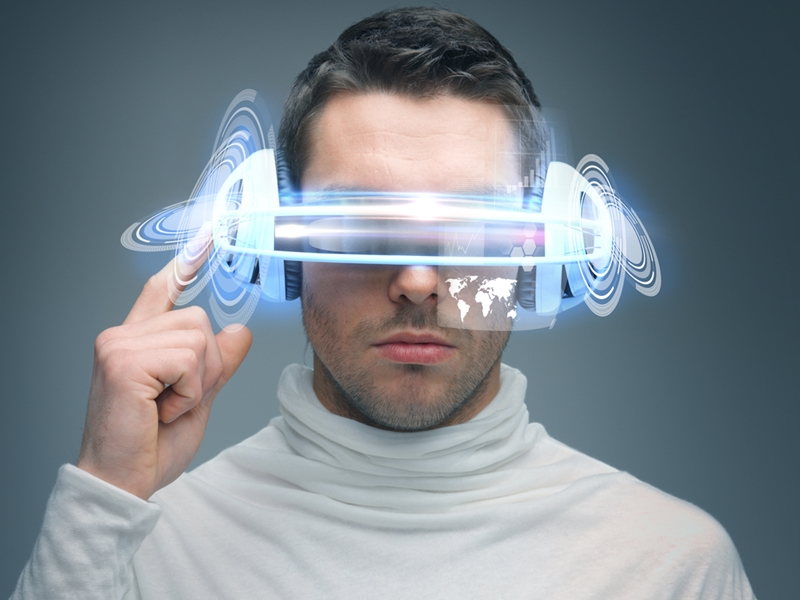Is the future depicted in ‘Ghost in the Shell’ closer than we think?
What happens when the line between man and machine blurs? That was the question posed in the recent blockbuster by director Rupert Sanders, 'Ghost in the Shell', based off the iconic 1995 cult-classic manga series by Masamune Shirow. Spoilers ahead.
The film revolves around the Major, a gun-toting, window-smashing female cyborg with a habit of jumping off skyscrapers in nothing more than a skin-tone body suit and the burning question of what makes her human if she's more machine than flesh?
Are we headed for a futuristic world where the line between man and machine has been all but wiped away?
'Ghost in the Shell' is more than a movie about a cyber-punk future Tokyo and a near-naked cyborg. The film goes into much more philosophical territory about the nature of identity when a person is nothing more than a brain implanted in a mechanical 'shell'. Is the Major nothing more than a mixture of electrical impulses, or does her 'ghost' – or soul – still exist in her artificial body?
It would appear we might be answering this question sooner than we think, thanks to our favourite venture capitalist. Elon Musk has recently announced his newest venture, which appears to take inspiration from 'Ghost in the Shell', and merge the computer with the human mind.
Don't let Elon Musk near your brain
Unless you want to be a cyborg, that is. The name of Musk's latest project is Neuralink, and it involves building a 'neural lace' that connects mind to machine, reports The Wall Street Journal. The goal? To improve human performance with the potential to even upload or download thoughts and memories, claims Wired.
This technology, if successful, could give humans many of the abilities of the Major and other characters in 'Ghost in the Shell'. So, are we headed for a futuristic world where the line between man and machine has been all but wiped away? Would this even be a good idea?
Will we be able to hack brains in the future?
One of the core themes of the film is the ability for people to 'deep dive' into the brains of others, in order to gain access to information hidden inside. However, doing so also exposes the diver to attacks from within, and tamper with the minds of whomever is inside, introducing harmful viruses and side effects that negatively influence the Major's mental state.
The question of hacking is one that is relevant today. As the number of cyberattacks continues to escalate, both in frequency and severity, according to the Australian Cyber Security Centre, protecting your data is something all people and businesses need to address.
If Musk's 'neural lace' were to prove successful, the question of how to protect not just our data, but our minds will have to be addressed before this sci-fi technology becomes a reality.

Telepathic communication and connecting remote teams
It's not just the Major who benefits from mind-machine advancements in a futuristic Tokyo. Even 'regular' humans with a little cyber advancements can scan an entire building for enemy hostiles, and even communicate telepathically with others.
The ability to instantly collaborate over sometimes vast distances lets teams operate cohesively
The ability to stay in touch with remote employees is something many businesses desire. Yet, you don't have to meld your mind to a machine to gain at least some of the benefits, minus the talking with your mind.
By utilising cloud computing technologies, such as Microsoft's Office 365 suite, businesses big and small can connect and communicate with remote workers. The ability to instantly collaborate over sometimes vast distances (as might be the case with globally-diverse companies), lets teams operate cohesively regardless of physical presence and do so in a secure way.
To find out more about how mobile technologies can help your business achieve greater productivity, get in touch with the team at LOOKUP.COM today.
